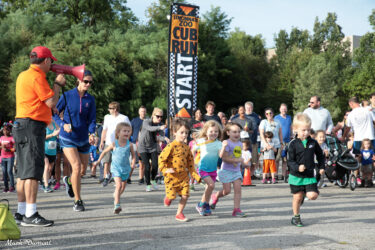With all kinds of goodies and beverages being offered up everywhere you go, should you stop nursing to enjoy them? No, La Leche League International says, by all means, keep nursing for your baby’s all-important first year and longer if possible, to receive the full benefits of nutrient-high breast milk.
Wine or No?
According to the American Academy of Pediatrics (AAP), one beer or one glass of wine a couple of times a week isn’t going to hurt your baby. “The amount of alcohol that would pass through to your baby is negligible,” says Dee Keith, a certified lactation consultant and La Leche League leader. If you consume a single alcoholic beverage while out, your blood alcohol level is likely to return to near-normal levels by the time you return home. Know that as soon as alcohol leaves your bloodstream, it leaves your milk as well.
There’s no need to “pump and dump” if you’re consuming alcohol in moderation, according to Keith. Consider timing your glass of wine so that you can wait for your body to metabolize the alcohol before breastfeeding (alcohol levels will peak in breast milk about one hour after consumption). She adds that most babies don’t like the taste of alcohol in breast milk, however, and so you may find that your baby consumes less breast milk.
Nicotine
According to a 2007 study from the National Institute of Health, there is evidence that breastfeeding offers protection to babies of smokers, even though nicotine is still passed through breast milk. However, that same study also found that breastfeeding moms who smoke might face longer nights, as the sleeping and waking patterns of participants’ babies were affected in the hours after their mothers smoked. Keith advises smoking moms wait until after breastfeeding, then step outside to smoke, washing your hands and changing your clothes upon your return.
Sweets & Treats
While some women aim to avoid spicy foods, garlic, peppers and broccoli because of the strong flavors, what you eat shouldn’t be a problem for your little breast feeder. In fact, Keith says you may find that your baby actually likes the flavor that garlic or onions contributes to your breast milk and he consumes more. If you DO notice fussiness in your baby after eating something strong, simply eliminate that suspect food from your diet.
Starbucks
A cup of coffee probably won’t have much impact on your baby, according to Keith, but it may if you are sipping caffeine-laden drinks like soda and coffee all day long. Babies don’t clear caffeine from their bodies as well as you can. Elevated levels of caffeine in your bloodstream will raise the levels in your breast milk, and that might make for an irritable baby.
Breastfeeding Success!
La Leche League of Ohio
lllohio.org/groups/cincinnati
Find a local breastfeeding consultant.
Breastfeeding Made Simple: Seven Natural Laws for Nursing Mothers
by Nancy Mohrbacher (2010, New Harbinger)
Breastfeeding Guide, Tips & Products 2012
A free Digital Edition, download it from La Leche League (llli.org; last item under “Resources”)
Infantrisk.com
The website of Texas Tech University Health Sciences Center, and offers a wealth of research on the benefits of breastfeeding, as well as research on the effects medications and other substances may have on breast milk





